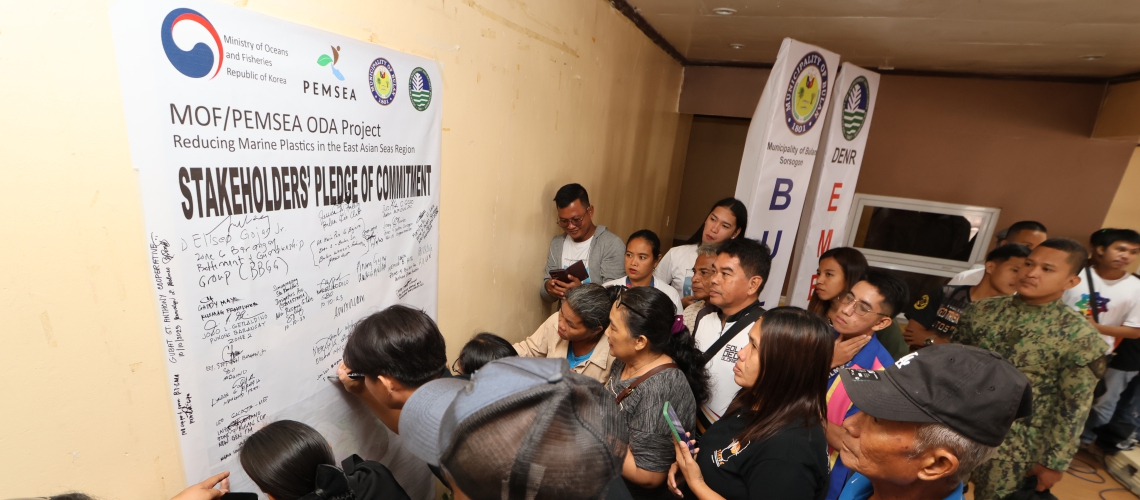
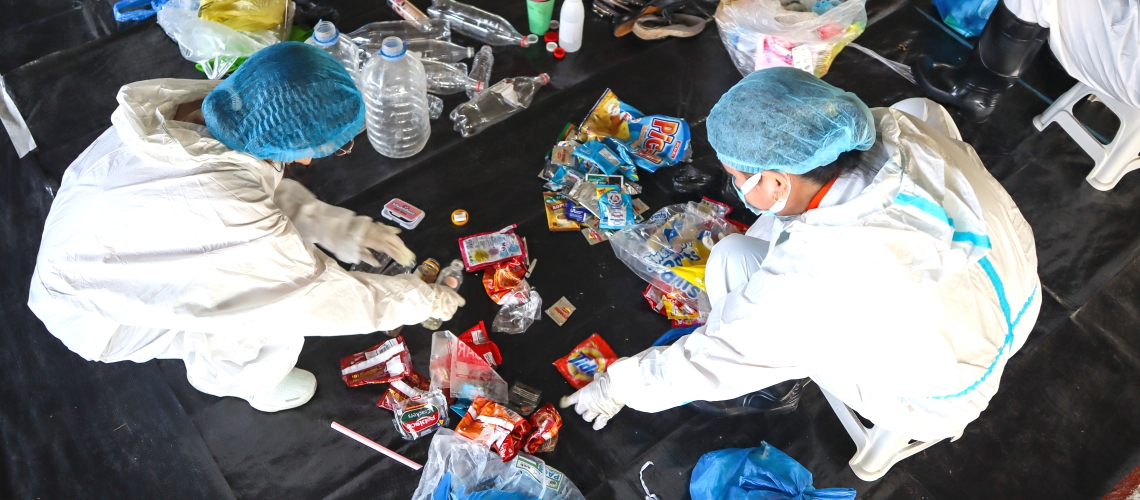
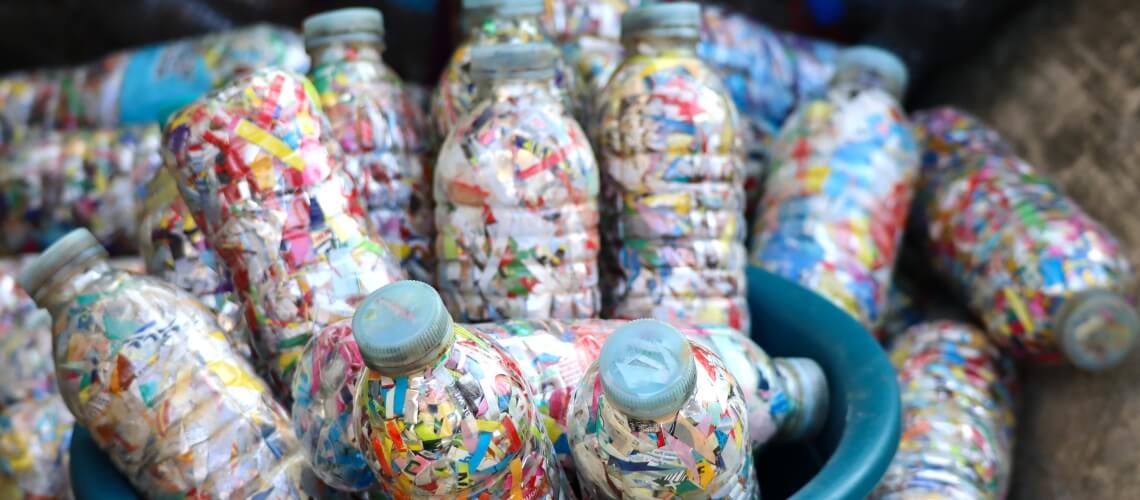
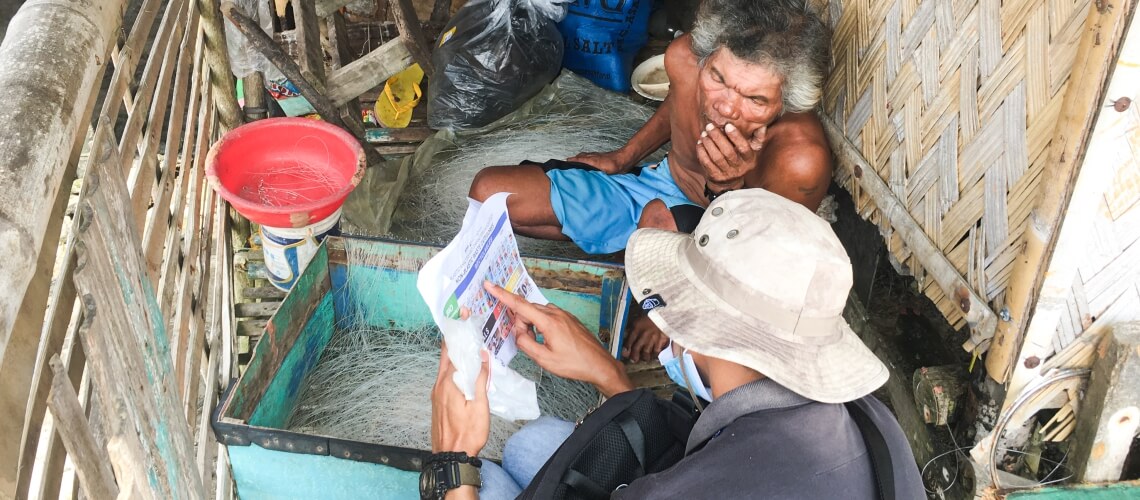
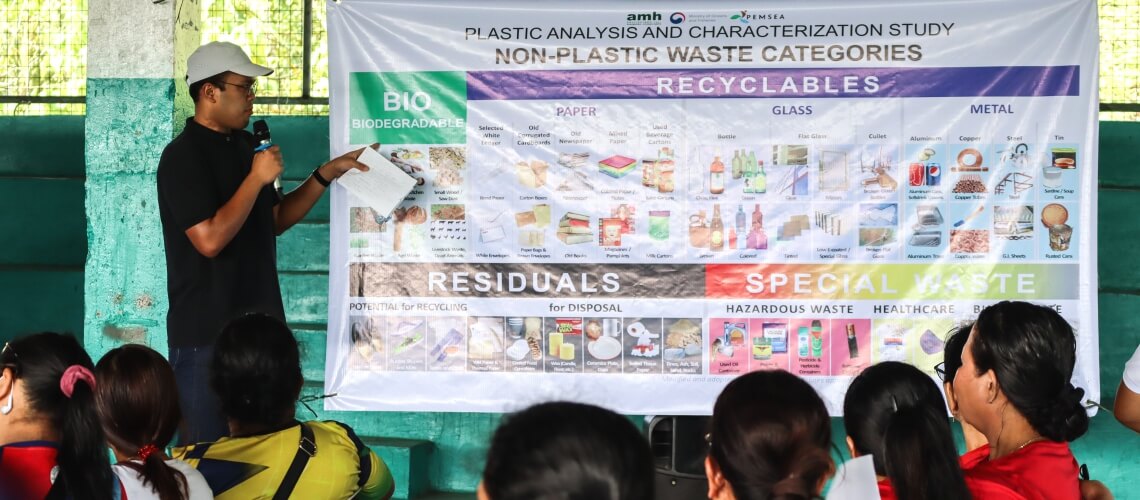
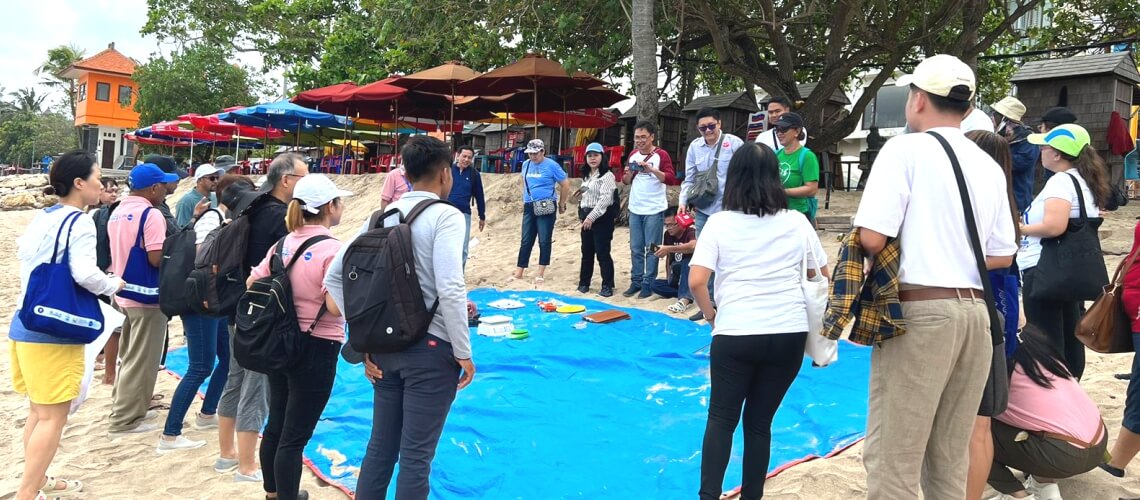
Breadcrumb
Marine Plastics ODA Project

Project Information
Duration: CY 2023-2028
Budget: Approximately USD 9,000,000 (KRW 12 billion)
Participating countries: Philippines and Timor-Leste
Funding Agency: Ministry of Oceans and Fisheries, Republic of Korea)
Implementing Agency: PEMSEA
Supporting Agencies: KOEM, PNLG, PNLC, and other PEMSEA partners
East Asia is considered an ecologically important region, being home to one-third of the planet’s coral reefs, mangroves, and seagrass beds. But it is also a hotspot for marine pollution including plastics. The Philippines is considered as one of the top five contributors to marine plastic pollution globally, while Timor-Leste is facing challenges in managing its wastes and plastics due to poor infrastructure and challenging geography.
The “Reducing Marine Plastics in the East Asian Seas Region” or the Marine Plastics Project is a six-year initiative between Partnership in Environmental Management for the Seas of East Asian and the Republic of Korea through the Ministry of Oceans and Fisheries. It aims to reduce marine plastics in 10 local sites in the Philippines (6) and Timor-Leste (4) through improved governance and management, demonstration of best practices and innovative solutions, marine litter monitoring, and increasing capacity and awareness of the partner communities.
The Project targets ocean-bound plastics: within 50-kilometer from the shoreline, river inflow, and fishing-related plastics.
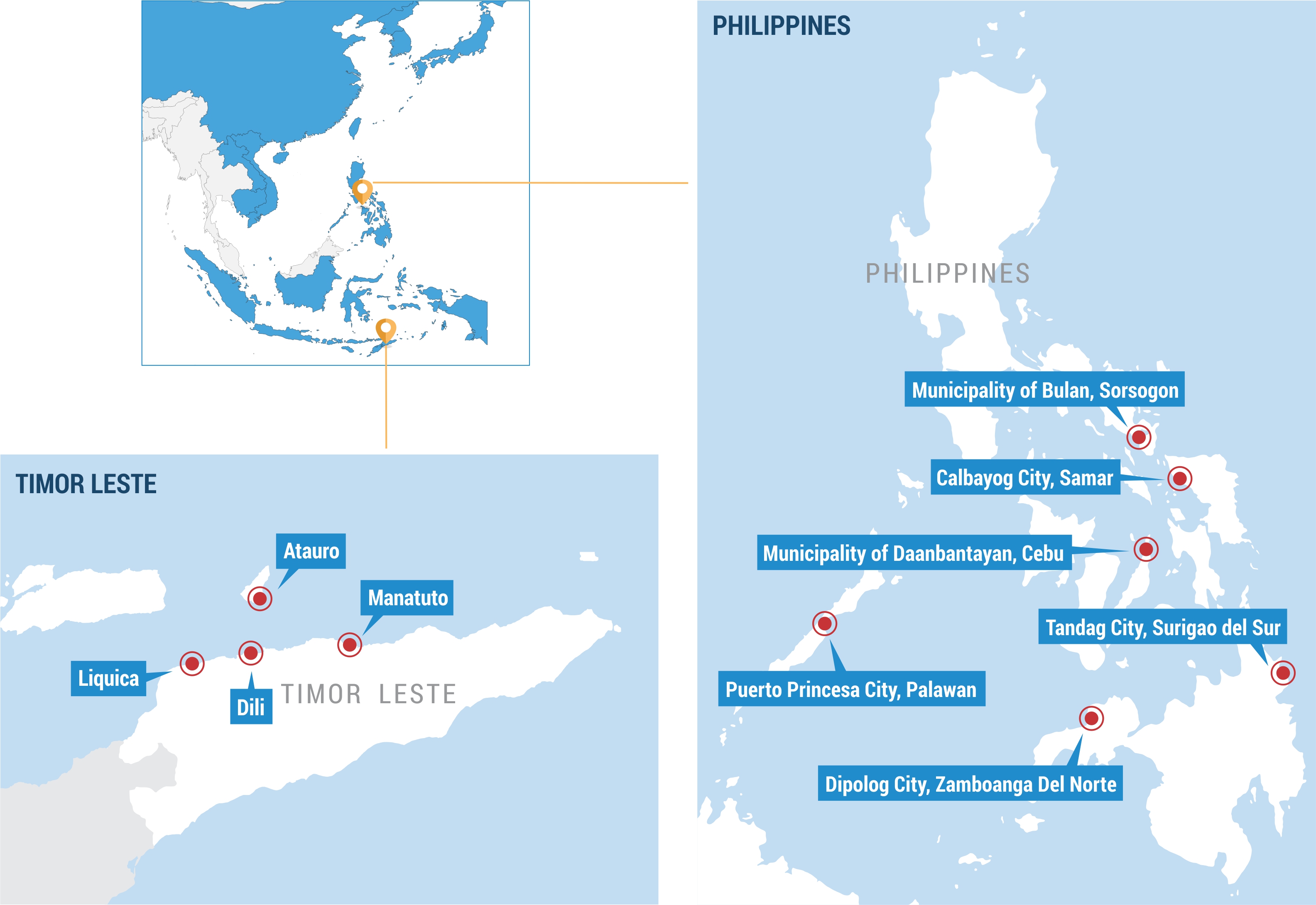
In the Philippines, the Marine Plastic Project is being implemented in collaboration with the Department of Environment and Natural Resources-Environmental Management Bureau and the Foreign Assisted and Special Projects Services, while in Timor-Leste, it is being implemented with the Ministry of Agriculture, Livestock, Fisheries and Forestry, Ministry of Tourism and Environment, and Ministry of State Administration.
Project Goal
The Marine Plastics Project aims to reduce marine plastics in 10 local sites in the Philippines and Timor-Leste through improved governance and management of marine plastics at the local government, demonstration of innovation and technology on marine plastics promoting circular economy, conduct of marine litter monitoring, and increased awareness and capacity of partner communities.
Project Components
Local governance on marine plastics management
Best practices and innovative solutions in marine plastics management
Beach monitoring or marine plastics and litter for long-term tracking of occurrence and trend
Capacity, awareness and communication initiatives on marine plastics management
East Asian Seas Marine Plastics Data Center
East Asia is considered an ecologically important region, being home to one-third of the planet’s coral reefs, mangroves, and seagrass beds. But it is also a hotspot for marine pollution including plastics. The Philippines is considered as one of the top five contributors to marine plastic pollution globally, while Timor-Leste is facing challenges in managing its wastes and plastics due to poor infrastructure and challenging geography.
The “Reducing Marine Plastics in the East Asian Seas Region” or the Marine Plastics Project is a six-year initiative between Partnership in Environmental Management for the Seas of East Asian and the Republic of Korea through the Ministry of Oceans and Fisheries. It aims to reduce marine plastics in 10 local sites in the Philippines (6) and Timor-Leste (4) through improved governance and management, demonstration of best practices and innovative solutions, marine litter monitoring, and increasing capacity and awareness of the partner communities.
The Project targets ocean-bound plastics: within 50-kilometer from the shoreline, river inflow, and fishing-related plastics
Go to the Marine Plastics ODA Microsite for more details.
Project Brief
Download project brief here.
Related Publications
-
MOF/PEMSEA Marine Plastics ODA Project Third Regional Steering Committee Meeting
The Regional Steering Committee (RSC) meeting is the main decision making body of the Official Development Assistance (ODA) Project entitled “Reducing Marine Plastics in the East Asian Seas Region” comprised of the donor: the Government of Republic of Korea represented by the Ministry of Oceans and Fisheries (MOF), and the participating countries: the Philippines, represented by the Department of Natural Resources and Environment (DENR) and Timor-Leste, represented by the Ministry of Agriculture, Livestock, Fisheries and Forestry (MALFF) in collaboration with the Ministry of Tourism and Environment (MTE) and Ministry of State Administration (MSA). The Regional Project Management Unit (RPMU) of the PEMSEA Resource Facility (PRF) of Partnerships in Environmental Management for the Seas of East Asia (PEMSEA) serves as the Secretariat to the RSC.
The RSC meets at least once a year to review project progress, provide strategic direction and guidance, and approve the work plan and budget for the subsequent year’s project activities. The Chair of the RSC rotates among the participating countries. The inaugural RSC meeting in 2023 was chaired by the Government of the Philippines, represented by H.E. Undersecretary Jonas Leones of the Department of Environment and Natural Resources (DENR). The second RSC meeting was chaired by the Government of Timor-Leste, represented by Mr. Aleixo Leonito Amaral, Advisor to the Secretary of State for Fisheries, Ministry of Agriculture, Livestock, Fisheries and Forestry (MALFF). For the third RSC, the meeting was chaired by the Philippines, represented by Dr. Al O. Orolfo, Director of the DENR Foreign-Assisted and Special Projects Service (FASPS).
The 3rd RSC Meeting was held via Zoom on 10 December 2025.
-
MOF/PEMSEA Marine Plastics ODA Project Interim Regional Steering Committee Meeting
The Regional Steering Committee (RSC) meeting is the highest decision making body of the Official Development Assistance (ODA) Project entitled “Reducing Marine Plastics in the East Asian Seas Region” comprised of the donor: the Government of Republic of Korea represented by the Ministry of Oceans and Fisheries (MOF), and the participating countries: the Philippines, represented by the Department of Natural Resources and Environment (DENR) and Timor-Leste, represented by the Ministry of Agriculture, Livestock, Fisheries and Forestry (MALFF) and the Ministry of Tourism and Environment (MTE). The Regional Project Management Unit (RPMU) of the PEMSEA Resource Facility (PRF) of Partnerships in Environmental Management for the Seas of East Asia (PEMSEA) serves as the Secretariat.
The RSC convenes every year to report the progress and approve work plan and budget for the following year’s project activities. The chairmanship is assumed by both participating countries on an alternating basis. This inaugural RSC meeting was organized in Manila, Philippines and chaired by the Government of the Philippines, represented by H.E. Undersecretary Jonas Leones of the DENR.
The Interim RSC Meeting was held on 12 December 2023 via Zoom.
-
MOF/PEMSEA Marine Plastics ODA Project Second Regional Steering Committee Meeting
The Regional Steering Committee (RSC) meeting is the main decision making body of the Official Development Assistance (ODA) Project entitled “Reducing Marine Plastics in the East Asian Seas Region” comprised of the donor: the Government of Republic of Korea represented by the Ministry of Oceans and Fisheries (MOF), and the participating countries: the Philippines, represented by the Department of Natural Resources and Environment (DENR) and Timor-Leste, represented by the Ministry of Agriculture, Livestock, Fisheries and Forestry (MALFF) in collaboration with the Ministry of Tourism and Environment (MTE) and Ministry of State Administration (MSA). The Regional Project Management Unit (RPMU) of the PEMSEA Resource Facility (PRF) of Partnerships in Environmental Management for the Seas of East Asia (PEMSEA) serves as the Secretariat to the RSC.
The RSC meets at least once a year to report on the progress of the project, sets its strategic directions and guidance and approves work plan and budget for the following year’s project activities. The inaugural RSC meeting in 2023 was chaired by the Government of the Philippines, represented by H.E. Undersecretary Jonas Leones of the DENR. This year, the 2nd RSC meeting was chaired by the Government of Timor-Leste, as represented by the Advisor to the Secretary of State for Fisheries, MALFF, Mr. Aleixo Leonito Amaral.
The 2nd RSC Meeting was held on 17 December 2024 via hybrid format at Radisson Park Inn, Quezon City and Zoom.
-
MOF/PEMSEA Marine Plastics ODA Project Intersessional Regional Steering Committee Meeting
The Intersessional Regional Steering Committee (RSC) Meeting of the MOF/PEMSEA ODA Project on Reducing Marine Plastics in the East Asian Seas Region was held on 17 September 2025 via Zoom, in line with the agreements made during the 2nd RSC Meeting in December 2024. The primary objective of this session was to review and endorse the detailed designs of pilot projects in the six Philippine project sites: Bulan, Calbayog, Daanbantayan, Dipolog, Puerto Princesa, and Tandag.
These pilot projects form part of Component 2 of the ODA Project, which focuses on demonstrating best practices and locally adapted solutions for marine plastics reduction. Designed to respond directly to site-specific challenges identified during the baseline assessments, the pilot projects aim to improve local plastics and waste management systems, enhance community engagement, and reduce the leakage of plastic waste into coastal and marine environments. The interventions are aligned with national and local priorities.
During the 2nd RSC meeting in 2024, the pilot project concepts for the Philippine sites were approved. Subsequently, the detailed designs of the pilot projects have been developed by the consulting firm, EECI, Inc., in close collaboration with local government units (LGUs) in 2025. These designs reflect the insights, technical inputs, feasibility, and on-ground realities gathered through extensive stakeholder consultations.
The Intersessional RSC meeting was an essential step to ensure that the proposed interventions are sound, feasible, and ready for implementation. The outcomes will not only guide the pilot project implementation but also reinforce the collective commitment of project partners to achieve measurable impacts in reducing marine plastics in the Philippines.
The meeting was organized in hybrid format: at the conference room of the office of Undersecretary Jonas R. Leones and through Zoom for the online participants.
-
Manual for Monitoring of Marine Plastic Debris
This monitoring manual is designed to help to monitor and assess the distribution and abundance of marine plastic debris on MOF/PEMSEA ODA Project on Reducing Marine Plastics in the East Asian Seas (EAS) Region.




